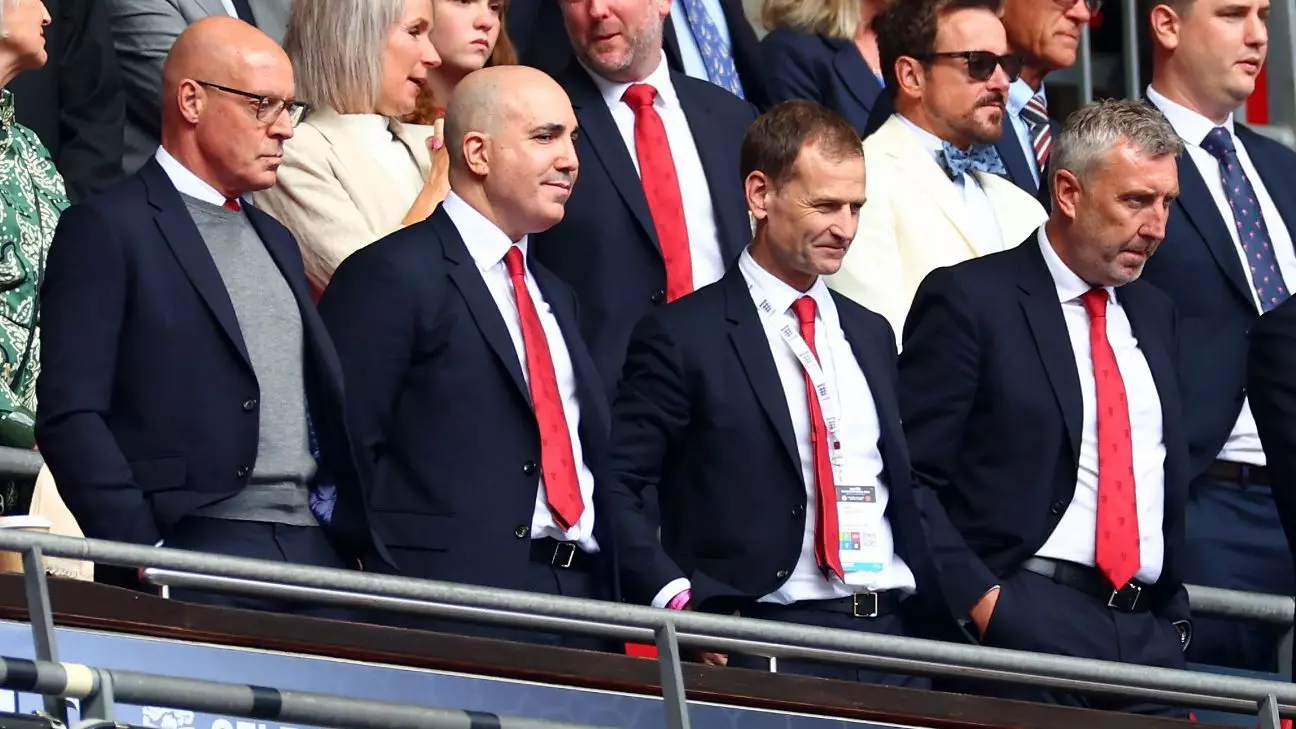Manchester United stands at a crucial junction in its storied history, as recent organizational shifts have highlighted the urgent need for effective leadership in football operations. The departure of sporting director Dan Ashworth, just five months into his role, reveals much about the club’s internal dynamics and its ambition to regain competitive stature within both domestic and European competitions. The pressure on the club, particularly under new head coach Ruben Amorim, intensifies as the search for stability and success continues.
Ashworth’s abrupt exit follows growing tensions with Sir Jim Ratcliffe, United’s minority owner who has taken a central role in decision-making. Sources indicate that Ratcliffe’s dissatisfaction with Ashworth was rooted in concerns regarding his suitability for the role, suggesting a disconnect between their visions for the club. This scenario reflects a larger trend in football where ownership and management must align to ensure coherent strategy and execution. Ratcliffe’s swift action signifies a club trying to avoid the pitfalls of stagnation; however, it also raises questions regarding the longevity and rationale behind such rapid changes.
During Ashworth’s short tenure, he was responsible for a significant summer spending spree of £182 million on five players, a move designed to revamp a squad that had been faltering under previous leadership. Yet, this investment has not yielded satisfactory results, with only defender Noussair Mazraoui appearing to justify his transfer fee. The apparent failure to deliver immediate value not only undermines Ashworth’s credibility but also puts immense pressure on the newly assembled football operations team.
Analysis of Ashworth’s recruitment strategy points to a troubling narrative. The signings made during his short time at the club have fallen flat, with several players struggling to maintain form or secure spots in the starting eleven. For instance, Manuel Ugarte and Leny Yoro’s transitions have been sluggish, raising concerns over the club’s assessment processes during recruitment. A series of underwhelming performances suggests that the analytical frameworks in place may not be adequate for the level of competition Manchester United aspires to achieve.
With the club grappling with financial concerns—including reported losses of £113.2 million—there is an urgent need for astute recruitment that compensates for missteps of the past. United’s ambition to return to the UEFA Champions League hinges on making shrewd investments that reflect both immediate needs and long-term potentials. A focus on data analytics and player scouting has become crucial; however, the executive leadership seems to be lagging behind other clubs in implementing sophisticated evaluation frameworks.
The recruitment model that former Liverpool sporting director Michael Edwards established stands in stark contrast to United’s recent strategies. Edwards played a pivotal role in constructing a competitive side that achieved Premier League and Champions League success, all while keeping an eye on the balance sheet. His ability to identify undervalued talent and refine existing squad strengths has been pivotal and has thus led to immediate success on the pitch.
As United searches for direction, it is crucial to examine how effective recruitment and a coherent operational strategy can foster a competitive edge in contemporary football. The evolution of sporting directors has become increasingly focused on data-driven results, uncovering hidden talents worldwide. The upcoming appointment of Hugo Viana as Manchester City’s sporting director emphasizes this trend; his previous successes at Sporting CP demonstrate the potential impact that insight-driven recruitment can yield.
As the dust settles on Ashworth’s departure, Manchester United faces an important crossroads. The club must identify a sporting director capable of understanding and executing the vision of the owners while maintaining a strategic approach to player acquisition. The next appointment will be critical, not just for the immediate future under Amorim but for the long-term stability of a club that has lost its way in recent years.
The inherent complexity of football operations necessitates that Manchester United pivot efficiently, establishing systems that can withstand the pressures of both financial scrutiny and competitive expectations. A strategic overhaul, one that embraces advanced analytics and comprehensive scouting, could very well be the key to restoring United’s legacy as one of the sport’s most revered institutions.
The recent changes at Manchester United serve as a reminder of the volatile nature of modern football management. As the club takes bold steps to reshape its operational landscape, the hope remains that clear vision, consistent processes, and astute leadership can once again place Manchester United at the pinnacle of the game.

